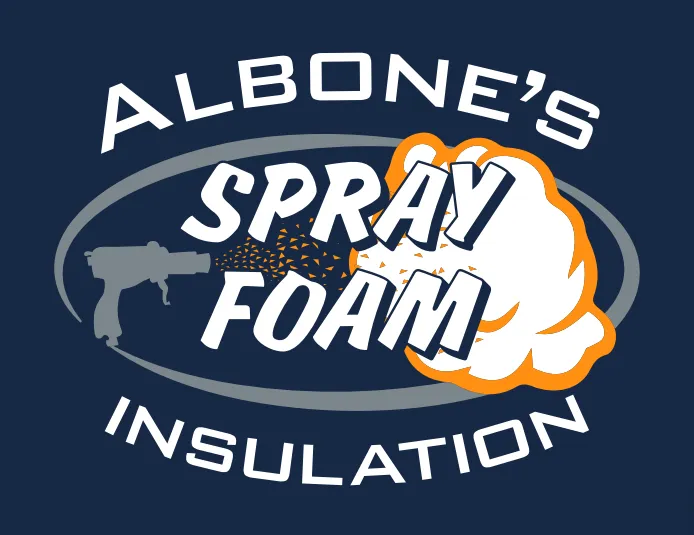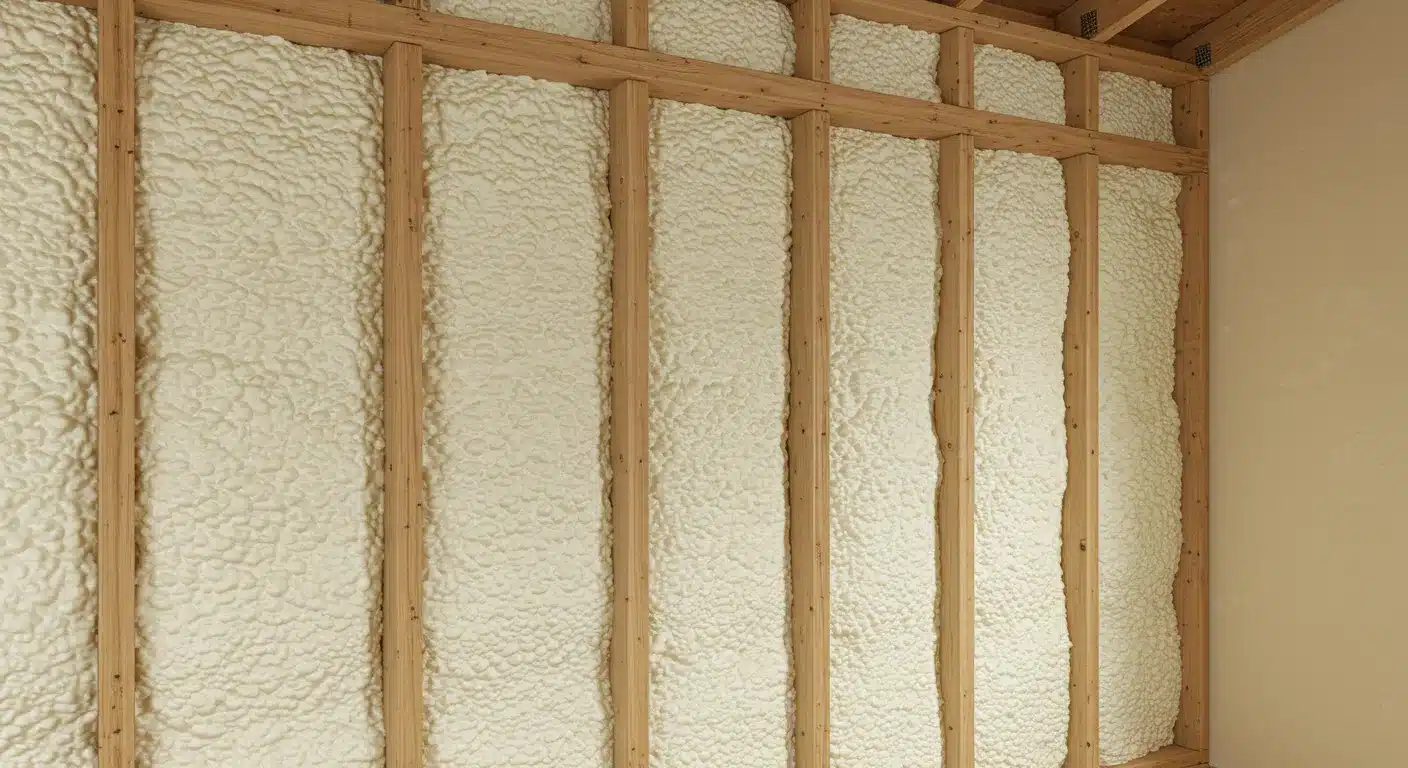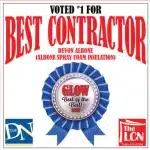Mold thrives in environments with excess moisture, organic materials, and poor ventilation. In Buffalo, NY, where temperature fluctuations and humidity create favorable conditions, mold can quickly develop in attics, basements, and wall cavities. Once mold establishes itself, it can spread rapidly, leading to structural damage and potential health risks.
Common sources of moisture contributing to mold growth include:
- Roof leaks
- Poorly insulated walls
- Condensation from HVAC systems
- Groundwater seepage in basements
- High indoor humidity
Mold exposure can cause respiratory issues, allergic reactions, and other health concerns, making it essential to prevent its development through proper insulation and moisture control.
How Spray Foam Insulation Reduces Mold Risk
Spray foam insulation acts as a barrier against moisture and air infiltration, addressing the root causes of mold growth. Unlike traditional fiberglass or cellulose insulation, spray foam expands to fill cracks, gaps, and crevices, creating an airtight seal that prevents damp conditions from forming.
Moisture Resistance and Air Sealing
Spray foam insulation offers exceptional moisture control in two key ways:
- Air Barrier Properties: Prevents warm, humid air from entering walls and condensing on cooler surfaces, eliminating a common cause of mold.
- Water Resistance: Closed-cell spray foam repels water, reducing the risk of absorption and mold development within insulation materials.
Thermal Regulation and Humidity Control
Buffalo’s cold winters and humid summers create temperature variations that can lead to condensation inside walls and ceilings. Spray foam maintains a consistent indoor temperature by minimizing thermal bridging, reducing the likelihood of condensation and moisture accumulation.
Best Areas to Apply Spray Foam Insulation for Mold Prevention
Certain areas of a home are more vulnerable to mold growth due to poor ventilation and temperature fluctuations. Applying spray foam in these locations provides long-term protection against moisture intrusion and mold formation.
Attics and Roof Decks
Uninsulated or poorly insulated attics often develop condensation due to temperature differences between indoor and outdoor air. Spray foam creates a continuous barrier that:
- Prevents warm air from escaping and meeting cold surfaces
- Stops ice dams from forming, which can lead to roof leaks
- Reduces humidity levels, lowering mold risk
Basements and Crawl Spaces
Basements and crawl spaces are prone to mold growth due to ground moisture and lack of airflow. Closed-cell spray foam is particularly effective in these areas, as it:
- Creates a vapor barrier, preventing moisture from seeping through walls and floors
- Seals foundation cracks, reducing water infiltration
- Improves air quality by limiting mold spore circulation
Walls and Rim Joists
Wall cavities and rim joists are common spots for mold development due to air leaks and poor insulation. Sealing these areas with spray foam:
- Blocks humid air from entering wall cavities
- Reduces the risk of condensation
- Enhances energy efficiency, keeping humidity levels stable
Why Buffalo Homeowners Benefit from Spray Foam Insulation
Buffalo’s climate presents unique challenges, making effective insulation essential for homeowners. Spray foam insulation offers advantages that directly address local weather conditions:
- Cold-Weather Performance: Prevents ice dams and condensation during winter months.
- Humidity Control: Keeps indoor humidity levels balanced, reducing mold risk.
- Energy Efficiency: Cuts heating and cooling costs by maintaining a consistent indoor environment.
Protect Your Home with Professional Spray Foam Installation
Proper installation is crucial for maximizing the benefits of spray foam insulation. At Albone’s Spray Foam, we specialize in high-quality spray foam applications tailored to Buffalo’s climate. Our expert team ensures that every corner of your home is sealed against moisture, reducing the likelihood of mold and improving overall energy efficiency.
If you’re concerned about mold growth and insulation performance, contact Albone’s Spray Foam at (585) 560-1369 or visit https://albonesprayfoam.com/ for a consultation.
Frequently Asked Questions
How does spray foam insulation prevent mold growth?
Spray foam creates an airtight seal that prevents moisture and humid air from entering wall cavities, reducing the conditions necessary for mold to develop.
Is spray foam insulation mold-resistant?
Yes, closed-cell spray foam is water-resistant and does not provide an organic food source for mold, making it highly effective in preventing mold growth.
Can I install spray foam insulation in an existing home?
Yes, spray foam can be applied during renovations or retrofits, sealing gaps and preventing future moisture problems.
Does spray foam insulation improve indoor air quality?
Yes, by sealing air leaks and reducing mold risk, spray foam helps maintain cleaner indoor air, reducing allergens and pollutants.
Is spray foam insulation safe for homes with children and pets?
Once cured, spray foam is completely safe and does not emit harmful chemicals. Proper installation ensures that fumes dissipate before occupancy.
How long does spray foam insulation last?
Spray foam insulation is highly durable and can last the lifetime of the building with proper installation.
Does spray foam insulation help with energy savings?
Yes, by sealing air leaks and providing high thermal resistance, spray foam reduces heating and cooling costs.
How much does spray foam insulation cost?
Costs vary based on the size of the project and type of spray foam used. Contact Albone’s Spray Foam for a customized quote.
Can spray foam be applied in cold weather?
Yes, spray foam can be installed in colder temperatures, though professional techniques are needed to ensure proper adhesion.
Should I choose open-cell or closed-cell spray foam?
Closed-cell foam is best for moisture-prone areas like basements and crawl spaces, while open-cell foam is ideal for soundproofing and interior walls.




